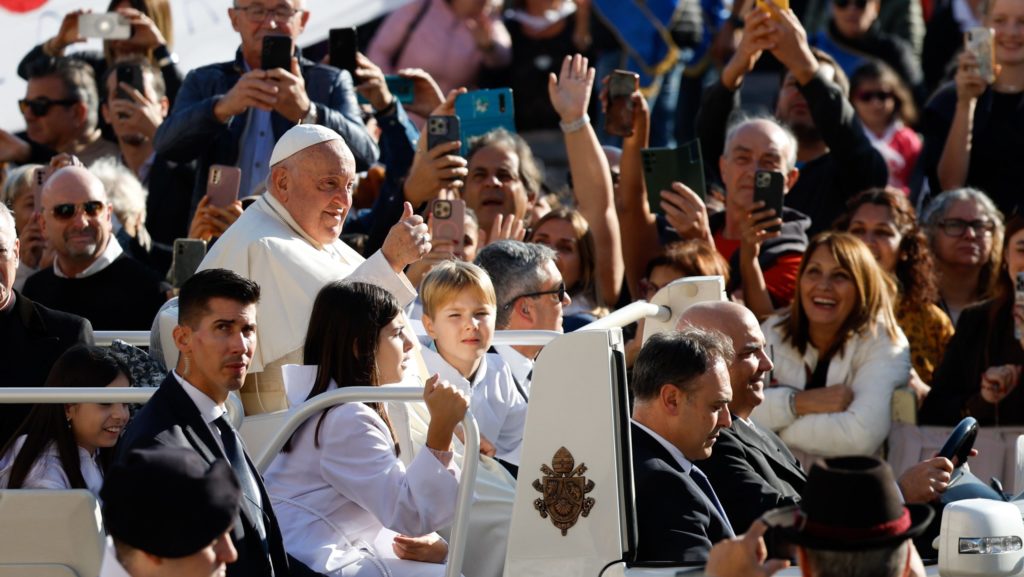The Catholic Church must put more effort into ensuring that the sacrament of confirmation is not the "sacrament of goodbye" for young people, who receive it and then do not come to church again until they want to get married, Pope Francis said.
"The problem is how to ensure that the sacrament of confirmation is not reduced, in practice, to 'last rites,' that is the sacrament of 'departure' from the church, but is rather the sacrament of the beginning of an active participation in its life," he said Oct. 30 at his weekly general audience.
Continuing a series of audience talks about the Holy Spirit in the life of the church, the pope said parishes need to identify laypeople "who have had a personal encounter with Christ and have had a true experience of the Spirit," and ask them to lead the confirmation preparation classes.
But all Catholics must help as well by rekindling the "flame" of the Holy Spirit that they received at confirmation like the disciples received at Pentecost, he said. And the Holy Year 2025, which opens Dec. 24, is a good time to do that.
"Here is a good goal for the Jubilee Year: To remove the ashes of habit and disengagement, to become, like the torchbearers at the Olympics, bearers of the flame of the Spirit," he said. "May the Spirit help us to take a few steps in this direction!"
"Confirmation is for all the faithful what Pentecost was for the entire church," the pope said, quoting the Italian bishops' catechism for adults. "It strengthens the baptismal incorporation into Christ and the church and the consecration to the prophetic, royal and priestly mission."
In other words, he told Arab speakers, "Through the sacrament of confirmation, the Holy Spirit consecrates and strengthens us, making us active participants in the church's mission."
Greeting a group of ethnic Croatian young people who had recently been confirmed in Germany, Pope Francis prayed that the Holy Spirit would "inflame your hearts and make you joyful witnesses for Christ."
Urging everyone present in St. Peter's Square to continue to pray for peace in Ukraine, Palestine, Israel and Myanmar, the pope said he had just read about 150 people being gunned down.
Pope Francis did not say where, but some assumed he was referring to a terrorist attack Oct. 6 in the village of Manni, Burkina Faso, while Vatican News reported he was referring to Israeli attacks on northern Gaza.
"What do children, families, have to do with war?" the pope asked. "They are the first victims. Let us pray for peace."

